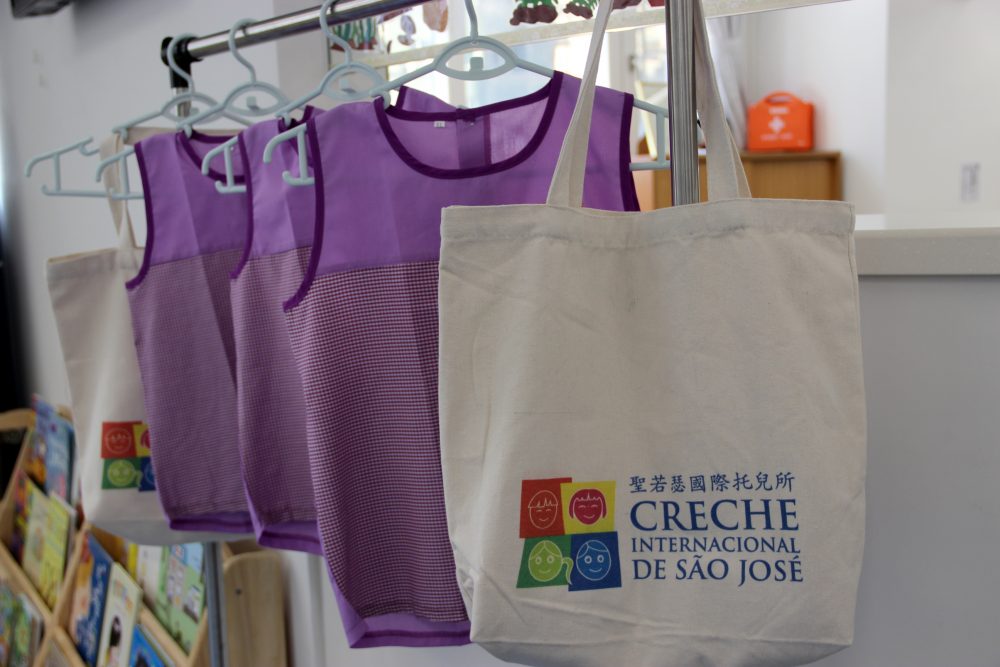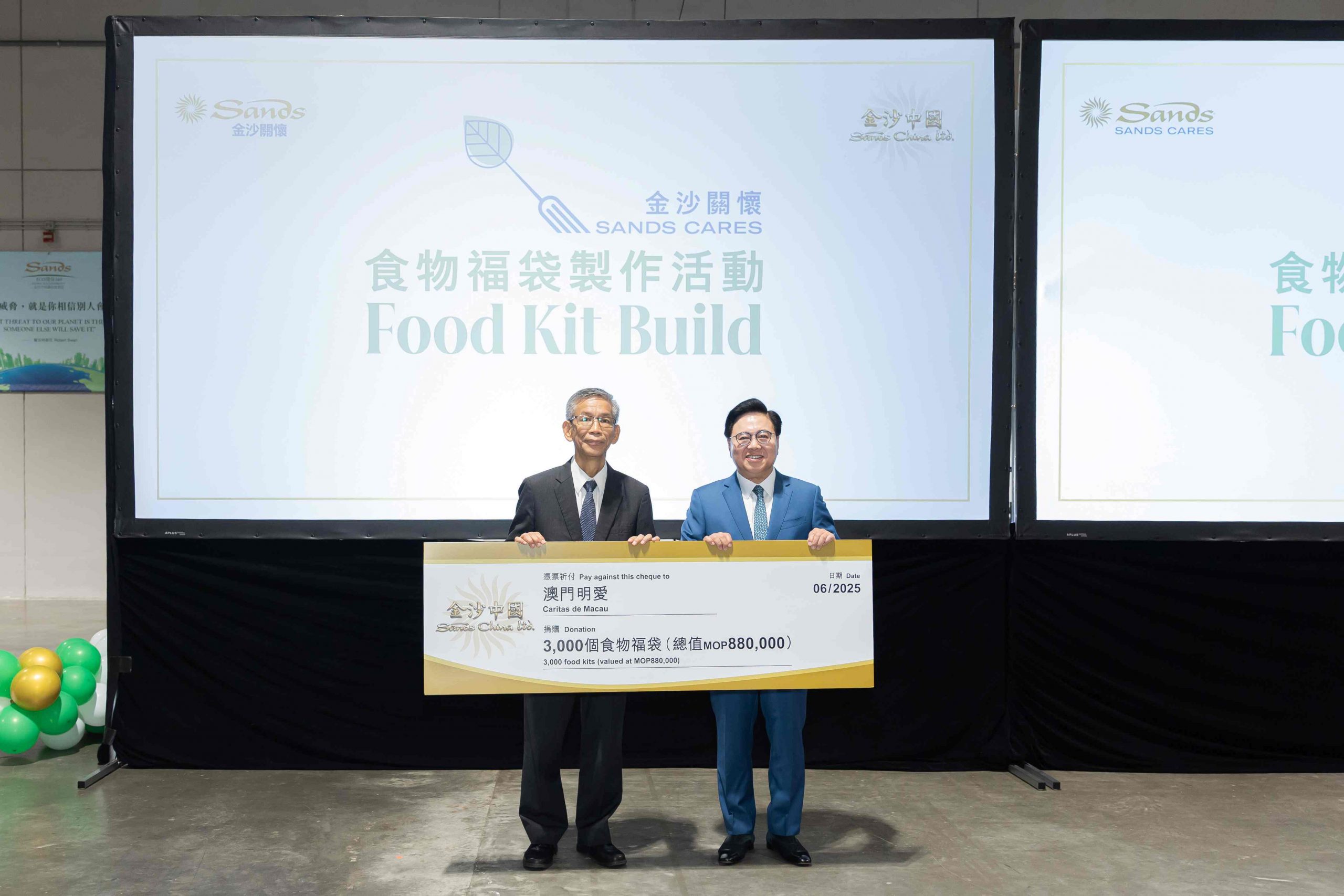Marco Carvalho
Supported by the Social Affairs Bureau, the Saint Joseph International Nursery is currently allowed to fill 140 of the 240 vacancies for which it has a valid license, but the situation is expected to change as early as January 2023. Starting from next year, the playschool will be able to admit as many as 168 students, director and principal of the institution Nair Cardoso told O Clarim.
“The government finally answered our requests and authorized the opening of one more room. This will happen as soon as January, and it means that starting from early next year, the number of students we are allowed to enroll will be extended to 168. Therefore, for those who are reading this news piece, if you want to grab one of the vacancies, do not waste any time,” Cardoso emphasizes.
“We are currently allowed to enroll 140 students. The school’s license is fixed at 240 vacancies, but the Social Affairs Bureau has authorized us to open only five classrooms so far. This means that, until now, we could accept only 140 children. That´s the equivalent of 28 children in each room. In my opinion, we shouldn’t have more than 18-20 children in a group or classroom. If we have European practices as a point of comparison, the local ratio clearly exceeds the limit. In places such as Portugal, we don’t have so many children per classroom. There is, at most, one adult for every seven children, unlike Macau where there is one adult for every 10-11 children. This is something I have been fighting for, low child-to-adult ratios. I have been trying to make the local authorities understand that we have to look at good examples abroad and bring them to Macau,” says the principal of Saint Joseph International Nursery.
The approval that was granted by the Social Affairs Bureau for the school to recruit a larger number of students was very well accepted by the institution, even though it doesn’t go as far as to cover the high demand that the nursery has recorded ever since it was created. “There’s a lot of demand out there. Last year, we had approximately 190 students on the waiting list,” the principal adds.
“We have students from Coloane, we have students from Taipa. In these cases, their families chose us due to our teaching philosophy. Location was not the primary reason why they chose our nursery. But we also have kids who live in the same building where the school is located. Different people have different reasons for the choices they make: there are those who chose us for our location, others for our teaching philosophy and a few families were looking for a place where their kids could make use of more than one language. Many families want to enroll their children in international schools later on and, therefore, we were their first choice. But there are many different reasons. And it’s a fact that we currently have a lot of kids on the waiting list,” Cardoso recognizes.
The amount of enrolled students is doubtlessly important, first and foremost because it is essential to the economic viability of the project. But the nursery’s main priority is to distinguish itself through its values and beliefs. One of the most immediate challenges faced by Cardoso as the principal of the Saint Joseph International Nursery is to convey the school’s teaching philosophy to employees and parents alike. “My main concern during my first year as the head of the nursery was to recruit and train new employees and promote the school, by building a brand-new image. I tried to institute a philosophy that was not in force before, a philosophy of mission. If we are a Catholic institution, I think this is a message that we have to be able to convey,” the director of the school believes.
“In Macau, there is a certain propensity for schools to try to please parents: there’s the idea that if parents pay, schools have to comply with their demands. And at Saint Joseph International Nursery we have this very strong message, which is that we have our mission, we have our own characteristics and we won’t let anything compromise that. I always try to have an open-minded conversation with parents when they first come to our school. That’s the big challenge. Educating both employees and parents alike,” Cardoso concludes.
Educating in Faith
Since the summer, Nair Cardoso combines her position as the principal of the Saint Joseph International Nursery with that of coordinator of the Portuguese-language catechesis group in the parish of Our Lady of Carmel. In Taipa’s only church, the involvement of the younger generations in pastoral and liturgical activities has contributed to a spiritual revival. The methodology adopted to bring the Good News to children and young people alike is effectively impressing children from different linguistic communities.
“We have had more Chinese kids enrolling, which is quite interesting. Their parents don’t speak Portuguese, but they insist, however, that the children should take part in Portuguese-language catechesis,” Cardoso tells O Clarim.
“Some of them do that because their children are studying at the Macau Portuguese School, and they somehow believe that catechesis offers them another opportunity to deepen their knowledge of the Portuguese language. But there are others that think religion is very important for the spiritual nurture of their children. Nevertheless, it is quite interesting to witness this demand. The interest of Chinese parents in our catechesis is increasing, perhaps because it is not so traditional as in other places or because our approach is a very rewarding one,” the educator claims.
In the parish of Our Lady of Carmel, the new catechetical year started behind schedule and, enrollment, therefore, remains open. The number of children taking part in catechesis in the only church in Taipa should not differ too much from last year’s numbers, although there were a few important changes. The most remarkable was Sister Maria Lúcia Fonseca’s departure. Other religious – who found fertile ground for evangelization in Taipa –have taken her place, Cardoso points out.
“We have Sister Maria, who is a Brazilian sister who is already working with us. We also have Sister Nerissa, who came from Hong Kong last year and ended up staying here. There is also Sister Veronica, who has also brought a new breath of life to our group,” the educator adds.


 Follow
Follow


